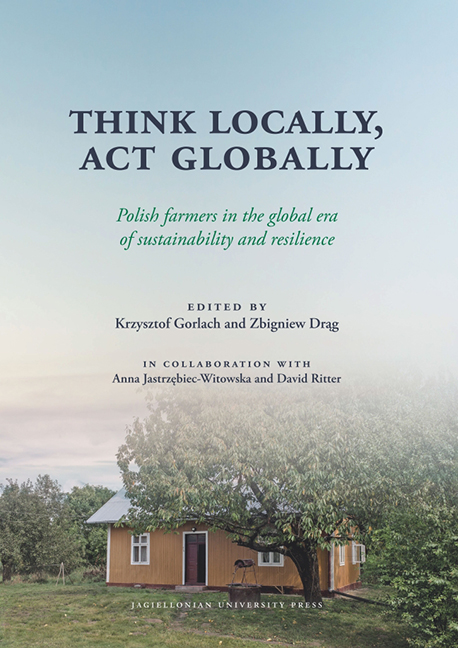Book contents
- Frontmatter
- Contents
- Family Farming: A foreword
- An Introductory Letter from the First Editor: Where the horses, cows, and even cats had their own names
- Part One Theoretical and Methodological Considerations
- Part Two Changes in the Post-Communist Transformation
- Part Three Diversification of Farmers’ Strategies
- Part Four Some Independent Studies
- Conclusion: Some Final Remarks from the First Editor
- Afterword: Renewing a Sociology of Agriculture
- Biograms
An Introductory Letter from the First Editor: Where the horses, cows, and even cats had their own names
Published online by Cambridge University Press: 16 July 2022
- Frontmatter
- Contents
- Family Farming: A foreword
- An Introductory Letter from the First Editor: Where the horses, cows, and even cats had their own names
- Part One Theoretical and Methodological Considerations
- Part Two Changes in the Post-Communist Transformation
- Part Three Diversification of Farmers’ Strategies
- Part Four Some Independent Studies
- Conclusion: Some Final Remarks from the First Editor
- Afterword: Renewing a Sociology of Agriculture
- Biograms
Summary
The following monograph should be seen as an attempt to present changes affecting the category of family farm owners in Poland over the last 70 years, since the end of World War II. These changes brought significant social transformations, including the dismantling of the landowner class (who had large farms in their possession), moving the state border westward and changing the multiethnic Polish society into one close to ethnic homogeneity. The main goal of this reflection is to recount ways in which family farms coped with various unfavorable forces and factors in order to remain in operation. One could say that the entire study can be viewed as a manifestation of the well-known phrase that served as the title of the James C. Scott (1990) book: Domination and the Arts of Resistance. It should not be surprising that the following work gives a great deal of attention to the functioning of family (peasant) farms during Communism. From 1944 to 1989, the primary goal of family farms facing the not-so-friendly, and sometimes even openly hostile, policies of the state was to simply maintain their existence. This was described in detail in my early article published in Sociologia Ruralis (see Gorlach, 1989). After 1989, the year which brought political breakthrough not just in Poland but also in other countries of Central and Eastern Europe, the situation did not appear to be more comfortable. Family farms were forced to fight for survival in the reality of the market economy. Their situation was presented in my other works that were based on empirical research (see Gorlach, 1995, 2001, 2009).
The monograph presented here refers to these analyses stemming from another edition of sociological research, completed within the framework of the MAESTRO project financed by the National Science Center of Poland. The main goal of the project was to depict the functioning of family farms as the traditional sector of agriculture in Poland in the contemporary context of globalization processes. The farms were examined in terms of the principles of sustainable development as well as flexibility and resilience in reaction to various crises.
- Type
- Chapter
- Information
- Think Locally, Act GloballyPolish farmers in the global era of sustainability and resilience, pp. 23 - 26Publisher: Jagiellonian University PressPrint publication year: 2021

